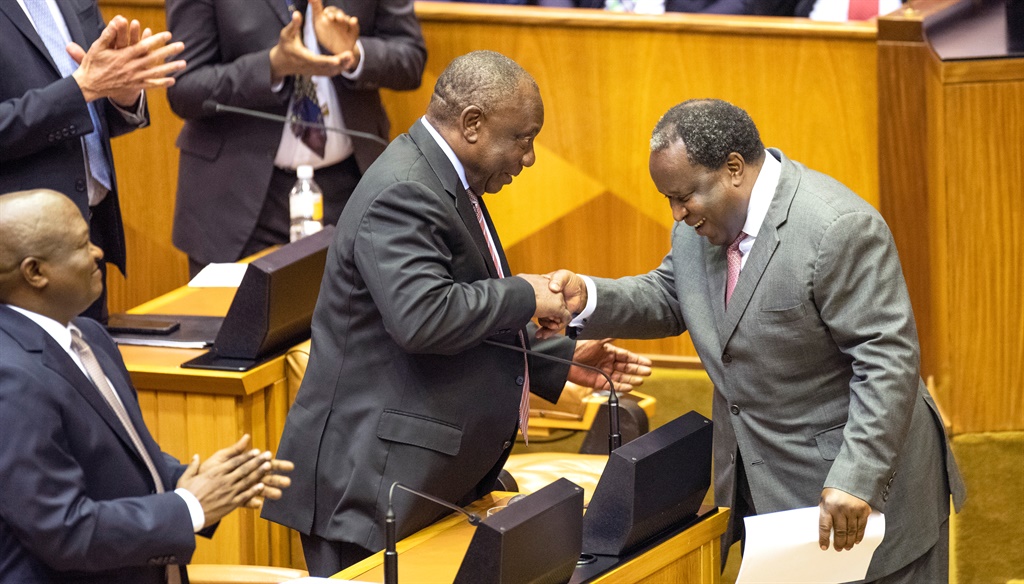


Minister of Finance Tito Mboweni and President Cyril Ramaphosa.
Brenton Geach, Gallo Images
- Finance Minister Tito Mboweni has very few options left to raise much-needed government funds, experts say.
- To curb excessive irregular spending, Mboweni wants government to look at zero-based budgeting, which allocates funding based on programme efficiency and necessity.
- Economist Mike Schüssler says Mboweni finds himself in a difficult spot as the country’s tax is being eroded and companies struggle.
Experts say Finance Minister Tito Mboweni has very few options left to raise much-needed government funds, and therefore wants to remove the discretion public office-bearers have over taxpayers’ money.
This came after Mboweni said government needed to adopt zero-based budgeting – an option he will recommend to President Cyril Ramaphosa and his colleagues in Cabinet.
He was speaking during a sitting of the National Assembly (NA) to debate and vote on the 2020 Appropriations Bill on Friday.
According to Deloitte, zero-based budgeting is a process that allocates funding based on programme efficiency and necessity rather than budget history.
As opposed to traditional budgeting, no item is automatically included in the next budget, and every programme and expenditure are reviewed at the beginning of each budget cycle.
It must justify each line item in order to receive funding.
ANALYSIS | Is Covid-19 spurring on reform of state-owned enterprises?
If Mboweni has his way, it would replace the existing system where government departments use the previous year’s budgets as the baseline for the next.
In his address to MPs, Mboweni made it bluntly clear government cannot “always assume that the baseline of last year will always be the way forward”.
He emphasised a start from scratch.
READ | ANC looks for new levers to boost South Africa’s economy
Solly Moeng, CEO of corporate communications consultancy DonValley Reputation Managers, said there is no use in trying the same failed method over and over again and expecting different outcomes.
“The old method has been open to so much abuse, theft, wastage. The finance minister wants to ensure that there is rational [spending] for every project. He wants justification for the money that is being spent in government,” he said.
“If adopted, the new way will require a lot of changes in attitude. But the ultimate aim is tightening the screws and taking away the discretion public officer-bearers have. This will help because expenditure will be monitored strictly. One bean at a time, every project will have to be accounted for,” he said.
In April, President Cyril Ramaphosa announced that government would provide R500 billion in fiscal support to be directed to Covid-19 priorities.
Of this amount, R130 billion was to be reprioritised from the national budget tabled in February.
Economist Mike Schüssler said Mboweni finds himself in a difficult spot.
“He must be expecting negative growth. One way of getting things right is addressing the wage bill. You cannot give above-inflation increases. This, is however, difficult.
“The tax base is being eroded. Many businesses, big companies, are making losses and you cannot tax an entity that makes losses. You can’t tax people who have made losses,” he said.

